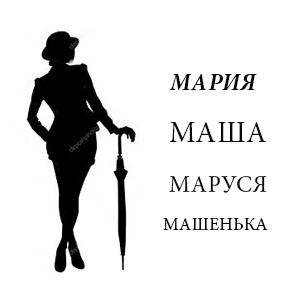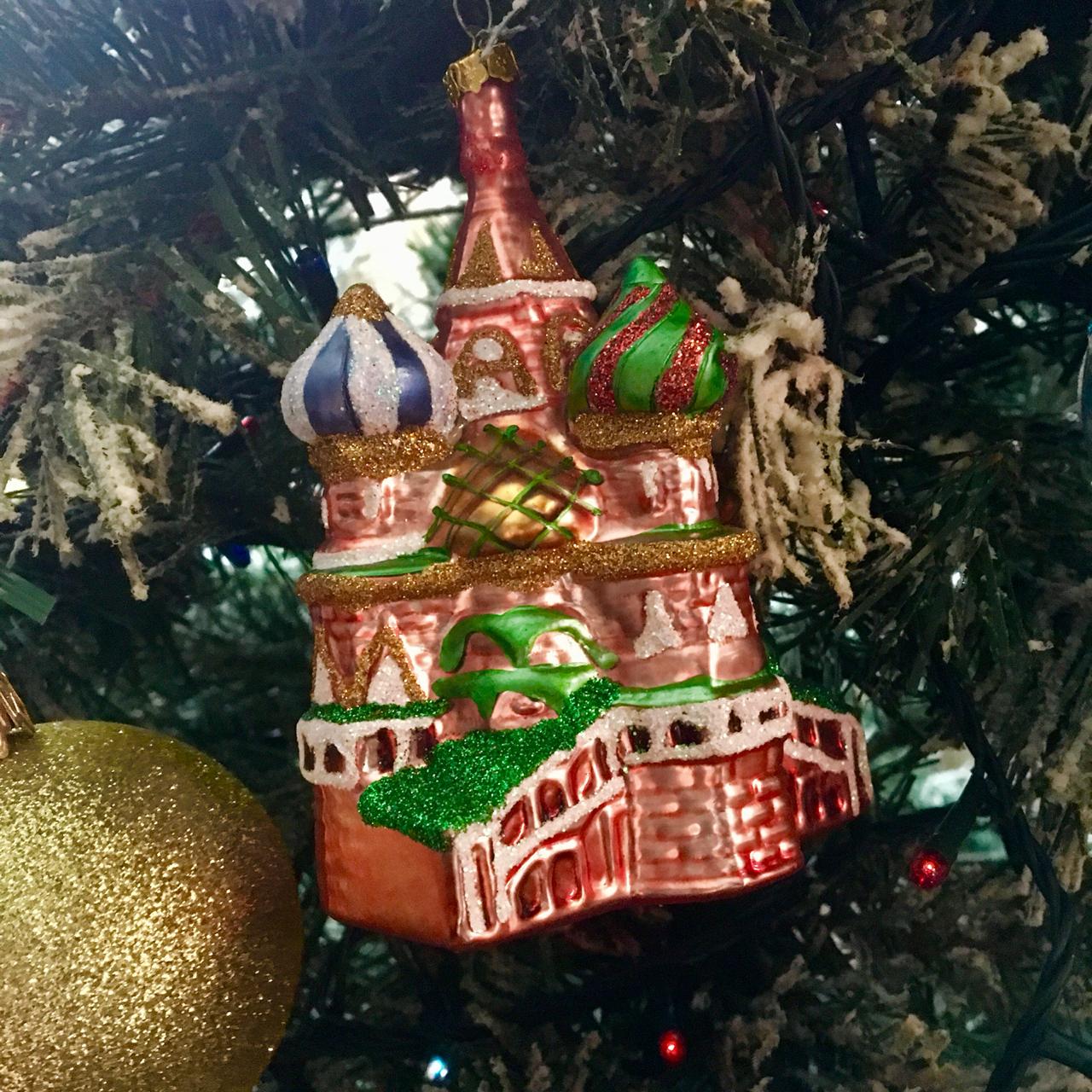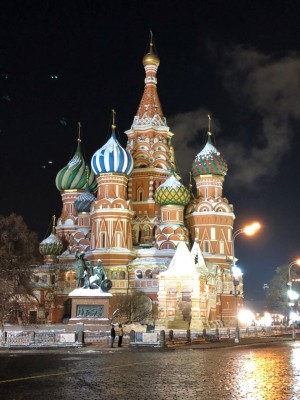Did you know that Vladimir means “owning the world” and Svetlana – a “woman of light”? Here is some interesting info that you may not learn in your Russian lessons but can impress your Russian friends with!
Three components of Russian names
I have written about Russian names in this blog explaining their structure – the 1st name, the surname, the patronymic – ИВÐРИВÐÐОВИЧ ИВÐÐОВ. If you learn Russian, you’ve got to learn the correct way of addressing people. But how do people choose their kids’ names? And what do they mean?
Russian people are superstitious, and there is a saying: “sow a name, harvest a destiny”. Many people believe that a name will influence a person’s character and life. A Svetlana, for example, is expected to be blond. Tatianas are supposed to be organised and efficient. Read on to find out more!
Endings of Russian names: masculine and feminine
One tip about Russian names: all male names end in a consonant, and the female ones end in either A or Я = YA, according to the rule consistent with the masculine and feminine genders of nouns. So in Russian it’s always easy to tell whether it’s a man or a woman you are dealing with (in correspondence, for example) – something that is often not clear in English in writing. The exception are the diminutives of male names which acquire a feminine ending (Misha, Sasha, Dima) – it makes them sound soft and affectionate.
The origins of Russian names
Most names given to people are very traditional ones – Biblical, Latin, Greek or ancient Slavic. In Russia, you will not meet anyone called “Apple” or “Poppy” just because their parents were keen gardeners or thought it sounded pretty – this would be a social disaster for the kid. But there are millions of Natalias, Alexanders and Olgas. Perhaps a bit boring and predictable, but we are a conservative folk.
In the old days, people were named after a saint on whose day they were born: a Russian Orthodox priest had a list of several saints for each day of the year from which the parents could choose. This of course is not the case any more – now names follow a fashion, often influenced by pop culture, films and even soap operas. As a result, a disproportionate number of girls in my generation are called Yulia (Julia), and the boys are all Sashas. And, when a popular Mexican soap “Simplemente Maria” ran on Russian TV in the nineties, a lot of girls were named Maria, an old forgotten Biblical favourite.
The most common Russian names
But let’s start with everyone’s favourites of all times. I think the most popular female name in Russia is Natasha, and the most popular male one is Sasha. Sasha is short for Alexander, which has a Greek root, meaning “a courageous/manly defender”. The name was traditionally given in honour of Alexander the Great (or Alexander of Macedonia, in the Russian tradition), to both boys and girls. As for Natasha, it’s a diminutive for Natalia, meaning “Christmassy”, or born at Christmas, from the Latin “natale domini”.
The above mentioned Sveltana is a Slavic name, meaning “light”, hence a strong association with blondes. It is a relatively new name, made up at the beginning of the 19th century, hugely popularised by the famous 19th century romantic poet Zhukovsky, who wrote a beautiful romantic ballad called “Svetlana”. In the Russian tradition, it’s shortened to Sveta, whereas in the West it often becomes Lana. Since it’s a made up name, there is no saint patronising Svetlana, so all Svetlanas are officially registered by the church as Fotinias – a strange match!
Russian names mean…
Alexey, another hugely popular name, is also a defender, according to its Greek root.
Andrei (Andrew) comes from the Greek for “manly, courageous”. Andrei, together with his brother Peter, was the first of Christ’s apostles. The Russian diminutive is Andryusha.
Anna (a version of Hanna, old Hebrew) is God’s grace. It is apparently the most common name in Slavic countries.
Anastasia – (Greek) reborn, resurrected. In the Russian tradition, contracted to Nastya.
For Elena (Helen) – there are two versions of the origin of the name, both Greek. It could mean “sunlight” or “Greek” – “Hellene”. The first known and the most famous Elena was, according to ancient Greek mythology, the most beautiful woman in the world. The distributors of destiny, the Moiras, allocated 5 husbands to her. The first one was the king of Sparta, Menelaos, from whom she was abducted by Paris, which caused the Trojan War. Hence, the “face that launched a thousand ships”.
Luidmila – a Slavic name, comes from “Ð¼Ð¸Ð»Ð°Ñ Ð»ÑŽÐ´Ñм” – dear to people, liked by people. Contracted to Liuda or Mila.
Sergei – from a Roman name meaning “serving” and “obedient”. The most famous Sergei (Sergiy) in Russia was Saint Sergiy of Radonezh who lived in the 14th century, the founder of the famous monastery complex in Sergiev Posad, just outside of Moscow. The diminutive for Sergei is Seryozha.
Maria – means “bitter” in Hebrew. According to the legend, she was so called because she was born at the time when the Egyptians made the life of the Jews bitter. Maria is the greatest of Christian saints, the mother of Jesus Christ.
Marina – means “of the sea” after the Greek goddess Venus Marina, who was born from the sea.
Dmitry – derived from the name of the Greek goddess of fertility, Demeter, means “giving life”. The most famous Dmitry in Russia is Dmitry Donskoy, the 14th century prince who put the end to the Tartar domination of Russia. The diminutive form is Dima.
Vladislav – a Slavic name, consisting of two parts – “vladet’” – “to own, to have”, and “slava” – “glory”. The diminutive forms are either Vlad or Slava.
Igor – a Scandinavian name – “protected by Ing, the God of prosperity”. The most famous bearer of this name is Prince Igor (10th century), one of the first Russian Royals.
Oleg – another Scandinavian name, meaning “saintly”. Prince Oleg was the founder of Kievan Rus (the 9th century), after conquering Kiev and proclaiming it to be ”the mother of all Russian towns”. A famous poem by Pushkin is based on a legend: Oleg was told by a clairvoyant that he would be killed by his favourite horse. He sent the horse away, and many years later came to see the place where its skull was laid to rest. At that moment a poisonous snake came out of the skull and bit Oleg, killing him.
Olga (Helga) – the female version of Oleg. Princess Olga was the wife of Prince Igor, and ruled over the Kievan Rus in the 9th century, after the death of her husband. She was ruthless to enemies, died at a very old age, and was canonised by the Russian Orthodox church.
Tatiana – from the Greek “builder, organiser, commander”. Tatiana’s day is celebrated in Russia on the 25th of January. It’s a rather romantic holiday dedicated to students, because Moscow University was founded on this day in1755, and it’s one of the last days of students’ winter holidays. The diminutive form of Tatiana, Tanya, has become a name in its own right in the modern Anglophone culture, which always surprises Russians.
Galina – a popular Russian name which I have found rather amusing since doing Spanish and Latin at University and discovering that galina is in fact a chicken! But in Greek, apparently, it means “calm, restful”, and that’s where it comes from originally. The diminutive form is Galya.
Boris – is the short form of an older name Borislav. “Borotsya” means “to fight”, so it’s a fighter. The two famous saint brothers, princes Boris and Gleb, the sons of Prince Vladimir who brought Christianity to Russia (year 988), were murdered by their own elder brother and later canonised.
Yulia (Julia) – “born in July”.
Mikhail (Michael) – from old Hebrew, “like a God”. Mikhail is the chief archangel, one of the most respected Biblical characters. The diminutive form of this name is Misha.
Pyotr – from the Greek word for “rock”. This is the equivalent of the English ‘Peter’, named after Christ’s principal apostle. The diminutive form of this name is Petya.
Vladimir – an old Slavic name, consisting of two words – “vladet”, meaning to “own”, and “mir” being either “world”or “piece”. So it can be interpreted as “the owner of the world” or “ruling peacefully”. Originally it was a pagan name, until the Baptism of Russia in 988 AD by Prince Vladimir. He was later canonised, and his name became a Christian one. It was a rather rare name until the 2nd half of the 19th century, because religious Russians preferred traditional Biblical, Greek and Latin names. The diminutive form of this name is Volodia or Vova, or, rarer, Vlad.
Evgeniy (Eugene) – means “noble” in Greek. The most famous Evgeniy in Russian culture is probably Engeniy Onegin, a poetic creation of Pushkin. There is a female equivalent, Evgeniya. The diminutive for both male and female forms is Zhenia.
Ekaterina (Catherine) – means “pure” in Greek. The famous 18th century Russian empress Catherine the Great was, in fact, a German princess named Sophia at birth. She deposed her weak husband Pyotr III, with the help of her lover, count Orlov. Catherine introduced a lot of progressive reforms, and, among other things, conducted a war with Turkey which allowed Russia to expand to the Black sea. She saw herself as an enlightened monarch, corresponding with Voltaire and writing essays in various learned subjects. The diminutive form of this name is Katya.
Ivan (John) – “the grace of God”, after John the Baptist. The old Russian form of this name is Ioann. It was, until recently, the most popular Russian male name. The most famous, but also the most scary Ivan was Ivan (Ioann) the Terrible, a 16th century Russian tsar. The diminutive form of this name is Vanya.
Irina (Irene) – from the Greek for “peaceful”, “calm” (yet another one!). The diminutive form of this name is Ira.
Anatoliy – from the Greek for “East” or “sunrise”. In the Greek tradition, Anatoliy is a resident of Anatolia, or Asia Minor, which is situated to the east of Greece. The diminutive form of this name is Tolya.
Valentin and Valentina – another unisex name, come from the Latin word “valens” – “strong, healthy”.
This is just a small portion of the most common Russian names. There are many more. Whoever you get as your teacher for a Russian course in London, it’s highly probably they will have one of these names!




